




Amy
Stephanie
Madison


Partner Jesse Maddox, Senior Counsel Dave Urban, and Associates Olga Bryan and Morgan Johnson succeed in getting federal district court to dismiss First Amendment lawsuit challenging DEIA Board policies and administrative procedures. Daymon Johnson is a history professor at a California Community College District. Johnson is an outspoken advocate for free speech who often criticized diversity, equity, inclusion, and accessibility (DEIA) initiatives. He is the faculty lead for a conservative-leaning organization that positions itself as a counterpoint to progressive policies, such as DEIA initiatives, which they argue can suppress free expression and impose ideological conformity.
In May 2021, one of Johnson’s colleagues filed a harassment and bullying complaint against Johnson based on a Facebook post accusing his colleague of being a “critical race theorist” and “social justice warrior.” The District investigated the complaint and ultimately found that Johnson did not violate District policy.
In June 2023, Johnson filed a lawsuit against District officials and the California Community Colleges Chancellor in federal court. He argued that District and statewide DEIA regulations violated his First Amendment rights to free speech and subjected him to discipline in the future for teaching his classes in a manner he claimed would be inconsistent with the DEIA regulations.
Johnson argued that the District officials would apply Education Code Sections 87732 and 87735 and the District’s civility policy (Board Policy 3050) against him in a manner that would infringe on his rights to free speech. Sections 87732 and 87735 govern employee discipline for causes such as unprofessional conduct, immoral conduct, or refusal to perform duties. Board Policy 3050 promotes civility and respectful conduct within the college community and prohibits various forms of harassment, intimidation, and aggression. Johnson argued that Board Policy 3050 was impermissibly vague under the First and Fourteenth Amendments.
Johnson also challenged several provisions of title 5 of the California Code of Regulations, which mandate DEIA standards for faculty and staff, and the Chancellor’s DEIA Recommendations, arguing they imposed viewpoint discrimination and compelled speech. The Chancellor’s DEIA Recommendations encourage community colleges to incorporate DEIA principles into faculty evaluations and tenure reviews. The recommendations encourage districts to assess faculty members’ ability to work effectively in diverse environments and promote equity in student outcomes.
Johnson asked the trial court to issue a preliminary injunction prohibiting the District from enforcing Education Code Section 87732 and 87735 and Board Policy 3050 against him, and to prevent the State’s DEIA regulations from being applied to him or any other community college faculty member in the District or the state. The District defendants and State Chancellor moved to dismiss Johnson’s complaint, arguing that Johnson lacked standing and failed to state a claim. The trial court referred the motion for preliminary injunction and the motion to dismiss to a magistrate judge for findings and recommendations.
In November 2023, a U.S. magistrate judge recommended that the trial court grant an injunction to prevent the District from investigating, disciplining, or firing Johnson in particular over his political and social speech.
The trial court ultimately declined to adopt the magistrate judge’s recommendations. The trial court ruled that Johnson lacked standing to bring pre-enforcement claims, as he had not demonstrated sufficient imminent or concrete injury. Many of the regulations in question require districts to adopt policies and employ practices
with the regulations, but at the time Johnson filed his action, the District had yet to adopt such policies and practices. The trial court also recognized that the government is allowed to state its official position that diversity is a desired goal. The trial court dismissed the case without prejudice, rendering Johnson’s motion for a preliminary injunction moot. Johnson has appealed the dismissal to the Ninth Circuit Court of Appeals.
Johnson v. Watkin (E.D.Cal. Sep. 22, 2024, No. 1:23-cv-00848-KES-CDB) 2024 U.S.Dist.LEXIS 171415.
Partner Mark Meyerhoff, Senior Counsel Dave Urban, and Associate Millicent Usoro were successful in front of the Ninth Circuit in upholding a faculty member’s termination despite academic freedom and first amendment arguments. A Community College District terminated a sociology instructor for misconduct, including intimidating a student in class during a discussion of same-sex marriage, making derogatory statements in class concerning women, and wrongful conduct during an investigation of the instructor. In May 2018, the professor arbitrated his dismissal and argued that the District had insufficient cause to warrant his discipline. He also invoked his rights to academic freedom. The arbitrator reduced the termination to a 90-day suspension. In November 2018, the District filed a Writ of Mandamus in state court but the trial court upheld the arbitrator’s decision. The District appealed and in October 2021, the court of appeal ruled in favor of the District and reinstated the termination.
The professor then filed an action in federal court in 2023, alleging the same factual arguments he asserted during the arbitration. He argued that his termination violated his academic freedom rights protected by the First Amendment’s free speech guarantee. The District won a motion to dismiss the complaint on the basis of collateral estoppel and res judicata. These doctrines prevent a party from re-litigating issues and cases, respectively, that have already been determined in a final judgment in a prior case. The professor appealed, but the District articulated in appellate briefing why collateral estoppel and res judicata principles barred Plaintiff’s claims. The Ninth Circuit Court of Appeals accepted the District’s arguments and ruled in favor of the District, upholding the trial court’s dismissal.
Schools and colleges should utilize any favorable outcome at a disciplinary hearing or arbitration proceeding to seek dismissal of subsequent civil lawsuits filed based on the same facts. It is important to highlight the ability and obligation of the employee to raise any and all arguments in their disciplinary hearing or arbitration proceeding and use those favorable outcomes against the employee in any later action.
On April 25, 2024, pro-Palestinian protesters at UCLA occupied Royce Quad and established an encampment. Royce Quad is a major UCLA thoroughfare and gathering place, surrounded by prominent buildings such as Powell Library and Royce Hall. The protesters cordoned of the area with plywood and metal barriers and set up checkpoints, requiring passersby to wear wristbands to cross them. Protesters guarded the encampment’s entrances and barred individuals who supported the existence of the state of Israel from entering. The encampment blocked access to some classrooms and buildings.
Three Jewish students, Frankel, Ghayoum, and Shemuelian, brought a lawsuit against UCLA. They asserted that they have a religious obligation to support the Jewish state of Israel and that UCLA allowed protesters to restrict them from areas of campus based on their religion.
Frankel frequently used Royce Quad before the protest. After protesters set up the encampment, he stopped crossing the area, believing he would have to disavow Israel to do so. Ghayoum could not study at Powell Library because protesters blocked his access to the library. He feared potential violence if he attempted to cross the encampment which blocked the library entrance. Ghayoum canceled plans to meet a friend at Ackerman Union after four protesters stopped him while he walked toward Janss Steps and repeatedly asked him if he had a wristband. Shemuelian decided not to traverse Royce Quad because she would have to disavow her religious beliefs to do so.
UCLA law enforcement cleared the encampment on May 2. However, protesters continued to disrupt campus. On May 6, protesters briefly occupied other areas of the campus. By May 23, they had set up another encampment that blocked access to campus buildings and disrupted operations. On June 10, protesters established an unauthorized encampment using tents, canopies, and water-filled barriers. The protesters restricted access to the general public and disrupted nearby final exams. Some students missed finals because the protesters and encampment blocked from them from entering classrooms. The university had to evacuate some students in the middle of their exams.
The three student plaintiffs argued that UCLA violated their constitutional rights by allowing pro-Palestinian protesters to establish an encampment that excluded them based on their religious beliefs. They claimed that UCLA’s failure to address the encampment’s discriminatory actions effectively barred them from accessing key campus resources and facilities. The plaintiffs asserted that this exclusion violated their rights under the First Amendment Free Exercise Clause, which prohibits discriminatory treatment based on religious beliefs.
The plaintiffs asked the trial court to grant a preliminary injunction that would prevent UCLA from continuing to allow such exclusions. They also requested that UCLA take steps to prevent future discrimination and ensure that Jewish students have equal access to the university’s resources. UCLA argued that third-party protesters, not the university, had excluded Jewish students from campus areas. UCLA contended that its focus was on de-escalating potential violence and managing campus safety.
The trial court granted the preliminary injunction. The court found that the plaintiffs had raised serious questions regarding their Free Exercise Clause claims and demonstrated a likelihood of irreparable harm if the court did not grant an injunction. The trial court ordered UCLA to not offer any ordinarily available programs, activities, or campus areas to any students if they know those programs, activities, or campus areas are not fully and equally accessible to Jewish students. The court also prohibited UCLA from knowingly allowing or facilitating the exclusion of Jewish students from ordinarily available portions of UCLA’s programs, activities, and campus areas, whether as a result of a de-escalation strategy or otherwise.
Frankel v. Regents of the Univ. of Cal. (C.D.Cal. Aug. 13, 2024, No. 2:24-cv-04702-MCS-PD) 2024 U.S.Dist.LEXIS 146433.
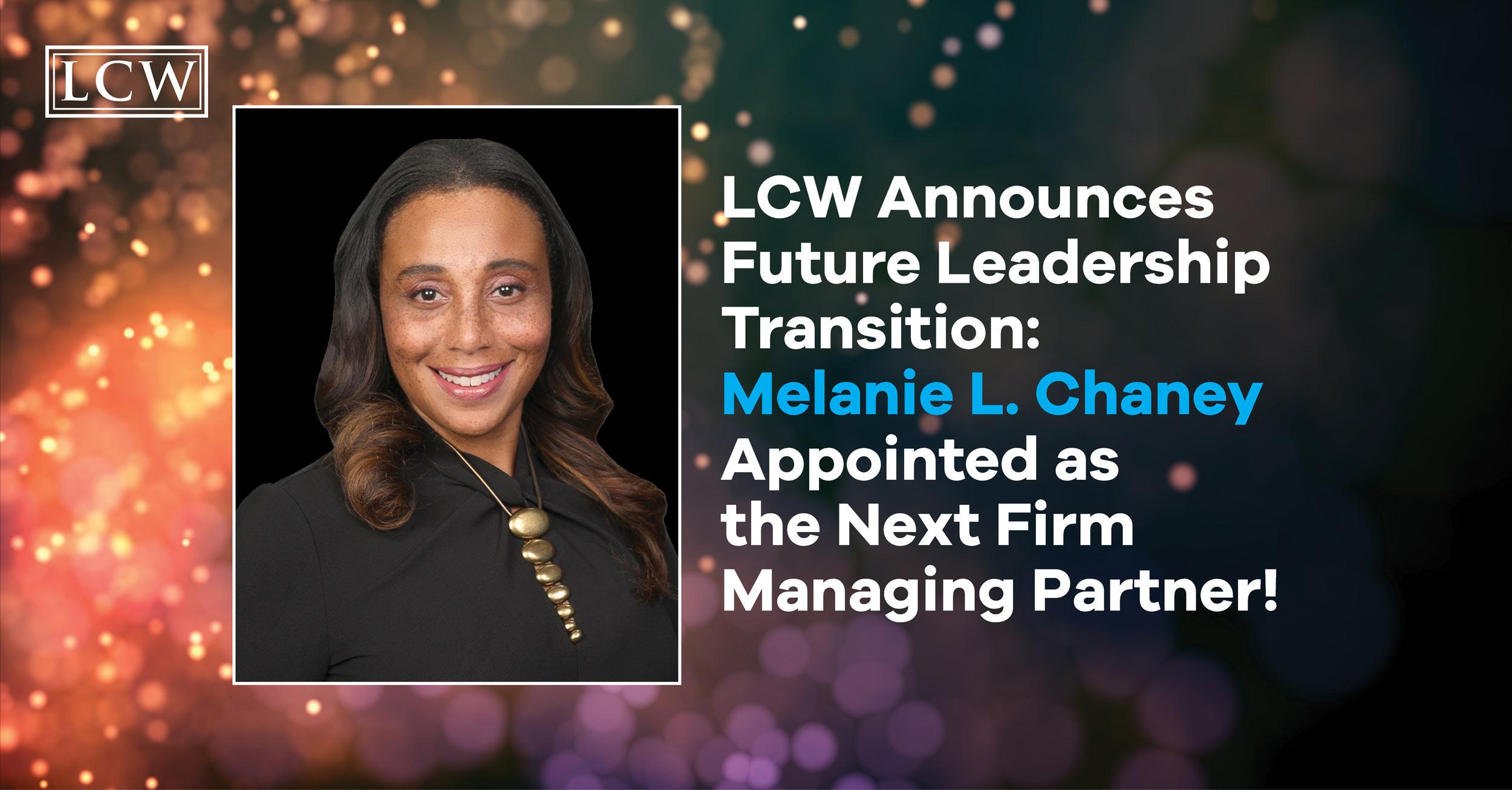
In March 2015, Arasely Soto, a teacher in the Beaumont Unified School District, suffered a severe cerebral artery stroke during a routine medical procedure at San Gorgonio Memorial Hospital. The stroke caused significant brain injury, rendering her unable to work.
In July 2015, Arasely Soto and her husband Raul Soto initiated a medical malpractice lawsuit against the hospital and Dr. Devin Borna, one of her treating physicians. The lawsuit sought damages for lost wages, medical expenses, and general damages due to the alleged negligence of the medical providers. In March 2017, Dr. Borna served a subpoena on the State Teachers’ Retirement System (CalSTRS) for records regarding Arasely Soto’s pension benefits. CalSTRS provides retirement, disability, and survivor benefits to California’s public school educators and their beneficiaries. CalSTRS complied with the subpoena in April 2017 by producing the requested documents. Additionally, CalSTRS sent a letter to Arasely Soto’s counsel in the malpractice action, informing them that it was complying with the subpoena and providing the records.
In January 2018, the Sotos attended a CalSTRS benefits planning session. During the session, CalSTRS provided the Sotos with written materials that explained their rights and obligations. These materials included a detailed explanation of CalSTRS’s right of subrogation, which would allow CalSTRS to recover its costs from the third party that was responsible for the injury. The materials explained that if the Sotos pursued a claim against a third party for Arasely Soto’s injury, they had to notify CalSTRS. This would allow CalSTRS to intervene in the claim, file its own action, or place a lien on any judgment or settlement. The materials also explained that if the Sotos did not notify CalSTRS and they recovered money from a third-party settlement, they might have to reimburse CalSTRS for the disability benefits.
One day after this session, the Sotos settled their claims against Dr. Borna for a six-figure amount without notifying CalSTRS. Ten days later, in January 2018, Arasely Soto applied for disability benefits with CalSTRS. In February 2018, CalSTRS acknowledge receipt of her disability benefits application. In May 2018, the Sotos settled their claims against the hospital for a seven-figure amount, again without notifying CalSTRS. In late June 2018, CalSTRS approved Soto’s application for disability benefits. CalSTRS later learned of the Sotos’ settlements.
In May 2021, CalSTRS filed a lawsuit against the Sotos, seeking reimbursement for the disability benefits it had paid. CalSTRS alleged that its right to reimbursement was based on Education Code sections 24500 and 24502, which authorize recovery from third parties who caused the injury. Additionally, CalSTRS argued that the Sotos had deprived it of its subrogation rights by failing to notify it of the settlements and obtain its consent.
CalSTRS’s moved for summary adjudication, asking the trial court to declare that it was entitled to statutory and equitable subrogation or reimbursement from the Sotos. The Sotos moved for summary judgment, arguing that Education Code did not authorize recovery directly from them and that the Civil Code barred CalSTRS’s reimbursement claim. California Civil Code section 3333.1 is part of the Medical Injury Compensation Reform Act (MICRA). It allows a medical malpractice defendant to introduce evidence of collateral source benefits, such as disability or insurance payments, to reduce damages awarded to the plaintiff. If these benefits are introduced, the collateral source is prohibited from seeking reimbursement or subrogation. In other words, sources like disability insurers cannot recover their payments if the defendant uses them to offset damages.
The trial court granted CalSTRS’s motion for summary adjudication, finding that CalSTRS had a statutory right to seek reimbursement. The trial court ruled that these sections allowed CalSTRS to recover directly from the Sotos because the Sotos had settled with the defendants without notifying CalSTRS or obtaining its consent. The trial court concluded
that the Civil Code did not bar CalSTRS’s claim. It reasoned that section 3333.1 did not apply because Arasely’s disability benefits were not introduced as evidence in the malpractice action to offset the recovery. It also found that the Education Code provisions, enacted after section 3333.1, took precedence over section 3333.1.
The Sotos appealed, asking the court of appeal to direct the trial court to vacate its orders and recognize that section 3333.1 barred CalSTRS’s reimbursement claim.
The court of appeal denied the petition. It concluded that CalSTRS had a valid statutory right to seek reimbursement directly from the Sotos. The court of appeal reaffirmed that the Education Code provisions allowed CalSTRS to recover directly from the Sotos since they had settled their claims without notifying CalSTRS or obtaining its consent. The court of appeal noted that the Sotos had not segregated their claims in the settlements. This means they did not specify which portion of the settlement was for damages already covered by CalSTRS’s disability payments and which portion was for other types of damages such as pain and suffering. Therefore, CalSTRS was entitled to pursue reimbursement directly from the Sotos for all of the benefits it had paid.
The court of appeal ruled that California Civil Code section 3333.1 did not bar CalSTRS’s recovery because the medical malpractice defendants did not introduce evidence of Arasely Soto’s CalSTRS disability benefits.
The court of appeal affirmed the trial court’s decision and denied the Sotos’ petition for writ of mandate. Soto v. Superior Court (2024) 102 Cal.App.5th 429 [321 Cal.Rptr.3d 531].

The LCW Labor Relations Certification Program is designed for labor relations and human resources professionals who work in public sector agencies. It is designed for both those new to the field as well as experienced practitioners seeking to hone their skills. Participants may take one or all of the classes, in any order. Take all of the classes to earn your certificate and receive 6 hours of HRCI credit per course!
Join our upcoming HRCI Certified - Labor Relations Certification Program Workshops: October 3 & 10, 2024 - The Rules of Engagement: Issues, Impacts & Impasse December 5 & 12, 2024 - Nuts & Bolts of Negotiations


The use of this official seal confirms that this Activity has met HR Certification Institute’s® (HRCI®) criteria for recertification credit pre-approval. Visit our website: www.lcwlegal.com/lrcp
AB 218’s Retroactive Waiver of the Claim Presentation Requirement is Not an Unconstitutional Gift of Public Funds.
A woman (A.M.M.) alleged that between 1979 and 1983, while she was a student at West Contra Costa Unified School District, her then high school counselor repeatedly sexually assaulted her. She alleged that the District was aware of the counselor’s abuse but did nothing to stop it.
In 2019, the California state legislature enacted AB 218. AB 218 significantly expanded the legal recourse available to victims of childhood sexual abuse by extending the statute of limitations for filing claims. The law also provided a three-year “revival window” from January 1, 2020, through December 31, 2022. During this period, survivors of childhood sexual assault could bring claims against individuals, private institutions, or public entities, even if the claims were otherwise barred by statutes of limitations or claim presentation deadlines under the Government Claims Act. Under the Government Claims Act, individuals must file a claim with a public entity within a set time frame and meet specific claim presentation requirements before suing, giving the public entity a chance to investigate and resolve the issue before litigation.
A.M.M. used AB 218’s revival window to sue the District. The District filed a demurrer with the trial court, asking it to dismiss the case. The District argued that AB 218 violated the California Constitution’s gift clause. The gift clause bars the Legislature from giving public money or property to individuals or private entities without a valid public purpose. The District argued that because the law gave sexual abuse survivors something they did not have before—the right to sue in court—it gave them an unconstitutional “gift.” The District also contended that
AB 218 violated its right to due process under state and federal law.
The trial court rejected the District’s argument that AB 218 violated the gift clause and overruled the demurrer. The District appealed.
The court of appeal agreed with the trial court. The court of appeal explained that the gift clause does not prohibit expenditures of public funds for a public purpose, and the Legislature has the discretion to determine what constitutes a public purpose. The court of appeal found that AB 218 served a legitimate public purpose by allowing victims of childhood sexual assault to hold responsible parties accountable. The court of appeal emphasized that AB 218 did not create new liability for the District. Rather, it removed procedural hurdles, like the claim presentation requirement, which the state had previously required for lawsuits.
The court of appeal rejected the District’s due process argument. It ruled that the District lacked standing to assert due process claims. Citing Star-Kist Foods, Inc. v. County of Los Angeles (1986), the court of appeal reaffirmed the rule that political subdivisions, such as school districts, cannot challenge state actions under the due process clauses. The court of appeal explained that, as a political entity created by the state, the District cannot invoke due process protections to challenge state laws.
The court of appeal denied the District’s petition for writ of mandate, upholding the trial court’s decision to allow A.M.M.’s claims to proceed. The court awarded costs to A.M.M.
West Contra Costa Unified School District v. Superior Court of Contra Costa County, 103 Cal.App.5th 1243 (2024).
The Lakeside Joint School District is located in the Los Gatos hills and serves a small student population across Santa Clara County and Santa Cruz County. In 2017, the District passed Measure A, a parcel tax measure to support essential educational programs like math, science, and reading. Measure A imposed a parcel tax of $647 per parcel for properties assessed over $2,000, generating approximately $500,000 annually. Under Measure A, seniors aged 65 or older who owned single-family residential parcels are exempt from the tax. The measure also exempts seniors receiving Supplemental Security Income (SSI) for disabilities.
Carlton Loeber, a senior and District resident, owned two undeveloped parcels within the District. In 2009, he transferred the parcels to an irrevocable trust and named himself as a beneficiary.
In 2021, with the support of initiative proponent William Bull, Loeber worked to qualify a new initiative titled “Citizens’ Initiative within the Lakeside Joint School District for the Purpose of Allowing a Parcel Tax Exemption to all Owners of Unimproved Parcels who are Over 65 Years of Age.” The initiative sought to expand Measure A’s exemptions to include undeveloped parcels owned by seniors.
Loeber collected signatures and submitted the initiative to Santa Clara County and Santa Cruz County for review. On June 16, 2021, the Santa Clara County Registrar of Voters confirmed that the initiative had garnered sufficient signatures to qualify.
On June 21, 2021, Santa Clara County sent a letter to the District advising that it could submit the initiative to the voters or call an all-mail ballot election. The letter encouraged the District to seek legal counsel to determine how to proceed. The County informed Loeber that in order for the initiative to be placed on the November 8, 2022 general election ballot, the District would have to submit it to the County. The County would need to receive the initiative by August 12, 2022.
On August 17, 2022, Loeber filed a petition for a writ of mandate in the Santa Clara County Superior Court. He named the District as the respondent and included the County, initiative proponent William Bull, and the 63 voters who signed the petition as real parties in interest. Loeber argued that under California Constitution article XIII C, section 3, voters had the right to petition for elections on tax matters, and the District must submit the initiative to the voters. Article XIII C, section 3 grants voters the power to use initiatives to reduce or repeal local taxes, assessments, fees, or charges.
Loeber asked the trial court to order the District to place the initiative on the November 8, 2022 general election ballot and to pay daily sanctions if it failed to do so. Alternatively, he asked the trial court to pay a penalty sanction of $10,000 each to himself and Bull and to call by October 1 for either a special election to be held by March 15, 2023, or an all-mail ballot election to be held on May 2, 2023. Additionally, he asked the trial court to determine whether Elections Code sections 1302 and 1405 allowed the registrar of voters to place a school district initiative on the ballot without action by the District’s board.
Loeber argued that he had personal standing and public interest standing. He argued that he had personal standing because he had a beneficial interest in the outcome. He continued to pay taxes on the parcels and had the potential to benefit from the new exemption if the initiative passed. He also asserted a public interest in ensuring that the citizen initiative process functioned correctly for tax matters.
The District argued that the citizen initiative process did not apply to school districts. It maintained that article XIII
C, section 3 did not cover modifications to parcel tax exemptions imposed by school districts. The District also argued that it would be too late to place the initiative on the November 2022 ballot or call a special election. The District provided evidence of the significant financial burden of placing the initiative on the ballot, estimating costs between $50,000 and $80,000. It argued that this expenditure would divert funds from essential educational programs.
The County opposed placing the measure on the November 2022 ballot. The County argued that doing so would interfere with the election process since the printing deadline had passed. The County explained that adding a measure to the ballot at this late stage would disrupt the preparation and printing of election materials, including translation and accessibility requirements. The County emphasized that it had been in regular contact with Loeber and had communicated the urgency of resolving the matter before the deadline.
The trial court held that Loeber lacked standing and dismissed the case. It concluded that Loeber lacked a beneficial interest in the case since he no longer personally owned the properties, which now belonged to the trust. The trial court also ruled that it was too late to place the initiative on the November 2022 ballot, as the deadline had passed and including the measure would disrupt the election process.
The court of appeal agreed with the trial court that Loeber lacked personal standing since he no longer personally owned the parcels, but found that Loeber had public interest standing. However, the court of appeal ruled against Loeber on the merits and held that the District was not obligated to place the initiative on the ballot. The court of appeal concluded that article XIII C, section 3 only authorizes initiatives aimed at reducing or repealing taxes, not creating new exemptions. The court also noted that the petition was filed too close to the election and adding it to the November 2022 ballot would disrupt the election process.
The court of appeal modified the trial court’s judgment to deny the writ petition and affirmed the judgment as modified.
Loeber v. Lakeside Joint School Dist. (2024) 103 Cal.App.5th 552 [323 Cal.Rptr.3d 18].

The 2024 Title IX Regulations require that colleges and universities provide yearly training to faculty and staff. This workshop meets the regulation requirements and assists institutions in maintaining a safe, respectful, and inclusive environment on campus by informing and equipping employees of their rights and responsibilities under Title IX, including notification and information requirements.
All employees, including faculty, staff and who are not members of the Title IX Team.
Contact Anna Sanzone-Ortiz (asanzone-ortiz@lcwlegal.com) to learn more about our Title IX trainings or to schedule a workshop.
CSU and UC systems have enacted new policies to ban encampments and regulate protests on their campuses. These changes respond to recent demonstrations, especially pro-Palestinian protests, where students set up tents and blocked campus pathways. The policies now prohibit overnight camping, the construction of unauthorized barricades, and the use of face coverings during protests when intended to conceal identity for illegal purposes. The policies also require that individuals identify themselves when university officials acting in their official capacity request them to.
University administrators emphasized that while they support free speech, these rules ensure public order and campus safety. Both systems aim to prevent disruption by banning activities that block walkways and impede access to university buildings.
The UC Board of Regents approved a new policy that limits how faculty can use university websites to express political opinions, such as criticism of Israel. The policy prohibits faculty departments and academic units from posting opinionated statements on the homepages of their websites. However, they can share such statements elsewhere on the site, as long as they add a disclaimer stating that the views expressed do not represent the entire university or the UC system.
During months of discussions with Academic Senate leaders, regents made several concessions. They allowed statements related to scholarly work to remain on homepages and permitted links to political statements on homepages. This ensures that faculty opinions are not confused with official university positions.
Departments that want to share political statements will need “develop and publish procedures” detailing how they plan to comply with the new policy. Each UC campus will implement the policy individually, with campus chancellors overseeing compliance.

The California Community Colleges, Chancellor’s Office has issued a proposed rulemaking titled “Mathematics, Engineering, Science Achievement (MESA) Program.” Senate Bill 444 (2023, Newman) required the California Community Colleges Board of Governors to adopt regulations for the operation of MESA programs at community colleges that align with their programmatic component of MESA programs.
The proposed regulations can be found on the Office of General Counsel page of the Chancellor’s website at Office of the General Counsel - Pending Regulatory Action. Comments must be received by the Regulations Coordinator prior to 4:00 p.m. October 25, 2024. Questions and comments should be emailed to regcomments@cccco.edu. A public hearing was scheduled to be held during the Board of Governors meeting on September 23, 2024.
The California Community Colleges, Chancellor’s Office has issued a proposed rulemaking titled “BurdenFree Access to Instructional Materials.” The proposed regulations aim to ease the burden on students by ensuring they can obtain required instructional materials before the first day of class. They also emphasize the importance of establishing and formalizing studentcentered best practices throughout the entire system.
The proposed regulations can be found on the Office of General Counsel page of the Chancellor’s
website at Office of the General Counsel - Pending Regulatory Action. Comments must be received by the Regulations Coordinator prior to 4:00 p.m. October 24, 2024. Questions and comments should be emailed to regcomments@cccco.edu. A public hearing was scheduled to be held during the Board of Governors meeting on September 23, 2024.
The California Community Colleges, Chancellor’s Office has issued a proposed rulemaking titled “Burden-Free Access to Instructional Materials.” In 2024, the Chancellor’s Office formed a workgroup with representatives from the Academic Senate for California Community Colleges, Chief Instructional Officers, California School Employees Association, California Community College Council for Professional Development and Chancellor’s Office staff to review the Flex Calendar regulations. The workgroup focused on aligning the regulations with Vision 2030 goals and equitable professional learning for all campus staff. The amendments include all campuss staff in professional learning, facilitate professional learning aligned with college and system goals, and establish reporting obligations related to professional learning.
The proposed regulations can be found on the Office of General Counsel page of the Chancellor’s website at Office of the General Counsel - Pending Regulatory Action. Comments must be received by the Regulations Coordinator prior to 4:00 p.m. October 21, 2024. Questions and comments should be emailed to regcomments@cccco.edu. A public hearing was scheduled to be held during the Board of Governors meeting on September 23, 2024.

October 7, 2024
10:00 a.m. - 11:00 a.m.
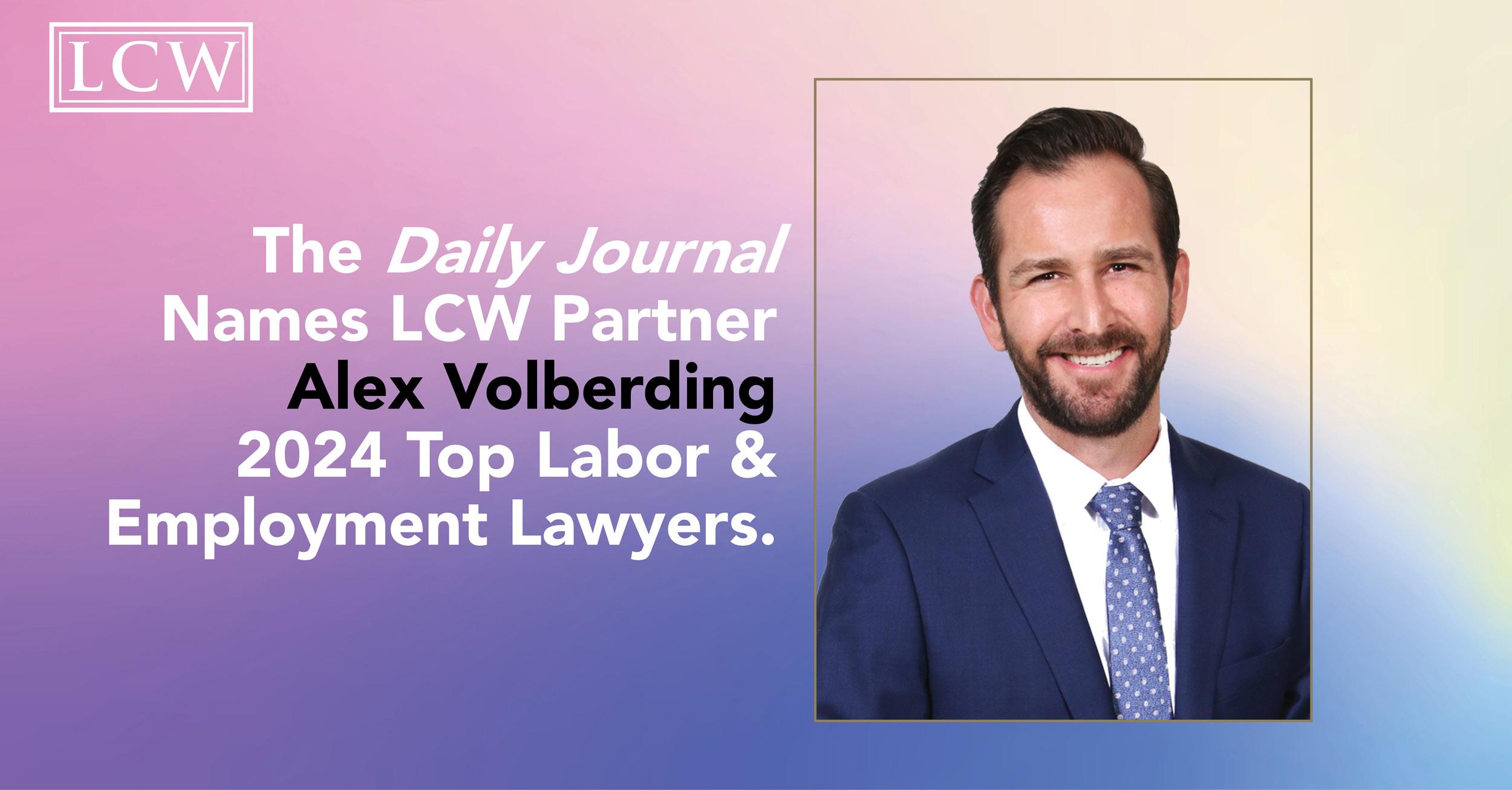

To view this article and the most recent LCW attorney-authored articles, please visit: www.lcwlegal.com/news
• Recently published in The Mercury News, LCW Partner Amy Brandt notes the legal challenges California public K-12 schools, CCDs, and universities are facing due to the national legal battle over new federal Title IX regulations, which extend protections to gender identity, among other things. While California is not directly challenging these regulations, hundreds of schools are impacted by a Kansas federal court injunction at schools with affiliations or students that are members of plaintiff organizations. Brandt explains that schools were “blindsided” by the sudden changes, causing widespread confusion, especially from a policy implementation standpoint. Regardless of their approach, Brandt notes that schools could face challenges from both sides of the issue.
California legislators recently passed AB 3216, also known as the Phone-Free School Act. AB 3216 requires school districts, charter schools, and county offices of education to implement policies restricting student smartphone use during school hours by July 2026. The bill aims to reduce distractions, cyberbullying, and academic dishonesty. The legislation builds on a 2019 law that gave schools the authority to regulate phone use, now making it mandatory.
AB 3216 cites studies showing that smartphones negatively impact students’ academic performance and contribute to anxiety and depression, issues heightened during the pandemic when screen time increased. It allows for certain exemptions, such as emergencies, medical needs, and when smartphones are required in a student’s individualized education plan. The bill also prohibits school staff and officials from accessing or monitoring students’ online activities.
AB 3216 requires that school districts engage stakeholders, such as teachers, students, and parents, when formulating these policies. Schools must review their policies every five years.
Governor Gavin Newsom will likely sign the bill. In August, he sent a letter to school district leaders urging them to take immediate action to restrict cellphone use this school year. He emphasized that excessive smartphone use increases anxiety, depression and other mental health issues in children.
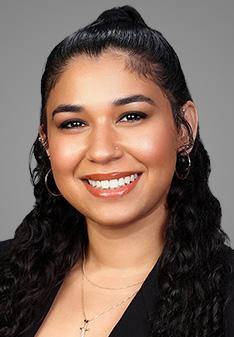
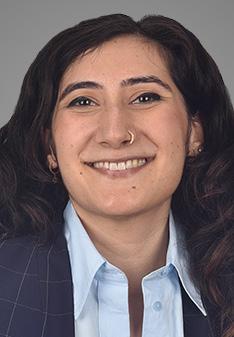

Barbara J. Boktor is an Associate in the Los Angeles office of Liebert Cassidy Whitmore, where she provides advice and counsel on labor and employment law matters.
Nandini Ruparel serves as an Associate in the San Francisco office of Liebert Cassidy Whitmore, where she offers specialized guidance and legal support in the areas of labor and employment law.
Twanda Bailey worked at the San Francisco District Attorney’s Office since 2001. During her tenure, Bailey worked with Saras Larkin in the records room. Bailey identifies as Black and Larkin identifies as Fijian/East Indian. On January 22, 2015, Larkin told Bailey that she saw a mouse run under Bailey’s desk. Bailey jumped out of her chair. Larkin then used a racial slur in reference to Bailey.
Bailey told three coworkers what Larkin had said. Bailey was crying and upset. Bailey did not immediately complain to the Department of Human Resources (DHR). She feared harassment and retaliation and Larkin was best friends with the personnel officer.
Bailey eventually met with a manager and the personnel officer to complain. Larkin did not admit to making the slur. The manager counseled Larkin and warned that the use of the alleged language was “unacceptable.” The manager documented the meetings with Bailey and Larkin and provided a written summary to the personnel officer. The personnel officer was responsible for reporting incidents of harassment to DHR, but she did not file a complaint as City policy required.
On March 23, 2015, Bailey asked the personnel officer for a copy of the complaint regarding the January 22 incident. The personnel officer said no complaint existed. When Bailey requested that the personnel officer file a complaint, the personnel officer refused. The personnel officer stated that Bailey should not have told her coworkers about the incident with Larkin, adding that, by doing so, Bailey could cause a hostile work environment for Larkin.
After the meeting, Bailey noticed a shift in the personnel officer’s behavior toward her, including mocking Bailey’s workers’ compensation claim. Bailey testified that this conduct was ongoing and occurred daily, although she did not believe it was racially motivated. In April, DHR received a report regarding Bailey’s allegations against Larkin. In May, Bailey formally reported that Larkin harassed her based on race. She also claimed that the personnel officer retaliated against her after their March 23 meeting.
Bailey’s performance review in July rated her as “Met Expectations,” similar to previous years. The review noted areas for improvement in attendance and responsiveness to supervisors. Bailey disagreed with this assessment, stating that her absences and challenges stemmed from the stress caused by her interactions with Larkin and fear of being accused of creating a hostile work environment. In July, DHR informed Bailey that her complaints did not meet the threshold for harassment or retaliation, and the department would not investigate further. The personnel officer received a memorandum that admonished her to accept, document, and report all EEO complaints to the DHR within five days.
In August, Bailey reported a new incident involving the personnel officer outside the office. Bailey felt increasingly intimidated by the personnel officer’s behavior. Bailey’s psychiatrist confirmed treatment for severe anxiety and depression due to workplace stress. DHR investigated Bailey’s allegations against the personnel officer but found the evidence inconclusive, though the personnel officer was disciplined for a separate incident.
In December, Bailey filed a FEHA lawsuit against the City for racial discrimination, harassment, and retaliation. The trial court granted the City’s motion for summary judgment. Bailey appealed and the court of appeal affirmed the trial court’s grant of summary judgment. The California Supreme Court granted Bailey’s request for review.
The Supreme Court overturned the grant of the City’s summary judgment motion, and allowed Bailey to proceed with her claims. The Supreme Court addressed two issues: 1) whether a coworker’s single use of a racial slur can be severe enough to support a harassment claim; and 2) whether an employer’s course of conduct that prevents an employee from reporting harassment is an adverse action that can support a retaliation claim.
As to Bailey’s harassment claim, the City argued that a coworker’s single use of a racial slur did not meet the standard of severe or pervasive harassment. Bailey disagreed, arguing that courts have found that even a single use of a racial slur can support a harassment claim. The Supreme Court held that that an isolated act of harassment may be actionable if it is sufficiently severe in light of the totality of the circumstances.
The Supreme Court held that the use of the term could support a harassment claim, even though it was made by a coworker, not a supervisor. The Supreme Court said that a coworker’s influence or the nature of workplace relationships can still create an abusive environment, even without direct managerial authority.
The Supreme Court also considered whether the City could be liable for the harassment Bailey experienced. The Supreme Court ruled that if a supervisor is involved in the harassment, the employer is strictly liable. However, if the harasser is a nonsupervisory employee, the employer’s liability hinges on whether it took immediate and appropriate corrective action upon learning about the harassment. The Supreme Court remanded the case to reassess the City’s liability, taking into account the potential undermining effect of the personnel officer’s actions on the City’s remedial efforts.
As to Bailey’s retaliation claim, the City had argued that no adverse action had occurred as a result of the personnel officer’s conduct or the 2015 evaluation. The Supreme Court found that a course of conduct that effectively seeks to withdraw an employee’s means of reporting and addressing racial harassment may be an adverse action that can support a claim of retaliation. The Supreme Court remanded the case for further evaluation.
Twanda Bailey v. San Francisco District Attorney’s Office, et al., 16 Cal.5th 611 (2024).
Lindsay Okonowsky is a psychologist who worked at a federal prison in Lompoc, California. She was responsible for the psychology department in the Special Housing Unit (SHU). Steven Hellman was a corrections Lieutenant who supervised SHU’s custody staff and was responsible for the safety of inmates and staff. Hellman and Okonowsky were peers. Hellman and Okonowsky disagreed over how to manage “difficult inmates”. Hellman believed that Okonowsky made it “impossible” for he and other officers to do their jobs.
In January 2020, Hellman created an Instagram page titled “8_and_hitthe_gate.” The page did not identify its creator. In February 2020, Okonowsky became aware of the page when Instagram suggested it to her. The page contained hundreds of posts-- many of which were overtly sexist, racist, anti-Semitic, homophobic-- and transphobic memes that explicitly or impliedly referred to the Bureau of Prisons, and Lompoc staff and inmates. More than 100 Lompoc employees, including the Human Resources Manager, the Union President, and a member of the prison’s Special Investigative Services followed the page.
Posts or comments on the page referred to interactions at the SHU, and indicated that the person who ran the page worked in the SHU. Certain posts referred to Oknowsky specifically, including posts containing derogatory images resembling her likeness. Some of the posts were graphic, suggestive of rape and physical harassment, and depicted scenes of violence against women in general, but also against “the SHU psychologist” in particular.
Okonowsky forwarded images from the page to her supervisor, Chief Psychologist Carl Clegg. Okonowsky also messaged the prison’s Acting Safety Manager to express her concern that he was following the page, and “liking” posts. The Manager responded that the posts were funny, that he was “Sorry, not sorry,” and that she needed to toughen up or get a sense of humor.
The following day, on February 18, 2020, Okonowsky met with Clegg to discuss the page. Clegg suggested that Okonowsky transfer to a different facility within Lompoc. She agreed and was reassigned to Lompoc’s low security facility. Okonowsky also met with the prison’s Acting Complex Warden, James Engleman. The Warden said he would direct Special Investigative Agent Victor Gonzales to investigate the issue and refer the matter to the Bureau’s Office of Internal Affairs.
Later that day, a post appeared on the “8_and_hitthe_ gate” page threatening Okonowsky, sexually debasing her, and denigrating a well-known woman in public leadership. The post included a sexually obscene hashtag referring to someone who could not take a joke. Someone had alerted Hellman to Okonowsky’s complaint.
Okonowsky no longer felt safe at work. She decided not to go to work the next day, sent the Warden a copy of the menacing post, and asked the Warden for a phone call. The Warden never responded. Instead, he forwarded her email to Special Investigative Agent Gonzales. Gonzales called Okonowsky that day to set up an initial meeting. During their phone conversation, Gonzales told Okonowsky that he had reviewed the page and didn’t “really see anything that’s a problem” with it.
Okonowsky returned to work and as time passed, Okonowsky felt less safe at work. Hellman continued to post disturbing content, including multiple posts to intimidate Okonowsky for reporting Hellman to prison management. The Human Resources Manager, who actively followed the page, told Okonowsky that he thought the memes were “funny.”
Okonowsky felt ostracized and concerned that she could be in danger. Her productivity declined. She emailed the Warden to ask for an update on the investigation and to state she was increasingly more uncomfortable. In March 2020, Okonowsky and her supervisor, Clegg, met with Associate Warden Gutierrez to discuss Hellman’s conduct. Clegg expressed his concern for Okonowsky’s safety and suggested that the prison convene a workplace violence Threat Assessment Team, but the Warden decided that a Threat Assessment was not warranted.
Hellman continued to post sexually explicit language that suggested sexual relations with or violence against women co-workers, which many Lompoc employees continued to “like.” In March 2020, Hellman posted an image referring to Okonowsky’s likeness accompanied by a sexually vulgar and profanity-ridden diatribe against
“the one staff member” for “relentlessly tell[ing] on staff.” Several Lompoc employees, including the prison’s Safety Manager, “liked” the post.
In April 2020, a new warden arrived at Lompoc who convened a six-member Threat Assessment Team to investigate Okonowsky’s complaint. Members of the Team advised Okonowsky not to look at the page anymore, but also directed Okonowsky to inform the prison’s leadership if the posts continued.
In its report, the Threat Assessment Team concluded that numerous Lompoc employees appear to be well aware that Hellman owned the page, and that Hellman’s denial that he directed any posts at Okonowsky was unconvincing. The Team concluded that Hellman’s conduct constituted impermissible “harassing conduct” and likely violated Bureau standards of conduct. The Team recommended that management take a variety of responsive actions, including maintaining the separation of Hellman and Okonowsky, and issuing a letter to Hellman ordering him to cease posting.
On April 16, 2020, the prison issued Hellman a letter stating that his posts appeared to have violated the Bureau’s Anti-Harassment Policy. The letter ordered Hellman to cease such conduct immediately and stated that any failure to comply would not be tolerated and could result in removal. But, for at least three weeks after receiving the letter, Hellman continued to make near daily posts, including posts mocking the prison psychology department and the Threat Assessment Team, and posts suggesting sexual relations and behavior with female coworkers.
Okonowsky alerted prison management to Hellman’s continued conduct in a letter on April 27, 2020. The prison never responded, and Hellman’s conduct continued. He made an additional three posts mocking the Threat Assessment Team. And he posted sexually overt posts targeting female co-workers. On January 24, 2021, Okonowsky transferred to a BOP facility in Texas.
Okonowsky filed suit in 2021, asserting a single claim under Title VII of the Civil Rights Act of 1964 for discrimination on the basis of sex. The district court granted the Government’s Motion for Summary Judgment, but it limited its consideration of the evidence to just five posts that, in the court’s view targeted Okonowsky specifically because of her sex. The district court concluded that those posts “occurred entirely outside of the workplace” because they: were made on a staff member’s personal Instagram page; and were never
sent to Okonowsky, displayed in the workplace, shown to Okonowsky in the workplace, or discussed with Okonowsky in the workplace without her consent. Okonowsky appealed.
The Ninth Circuit reversed and allowed Okonowsky to proceed with her case. The Ninth Circuit remanded for the district court to look to: 1) whether Okonowsky was subjected to verbal or physical conduct of a sexual nature; 2) whether the conduct was unwelcome; and 3) whether the conduct was “sufficiently severe or pervasive to alter the conditions of employment and create an abusive working environment.” As to the third factor, the Court held that conduct that occurs outside of the workplace must be considered. The Court rejected the notion that only conduct that occurred inside the physical workplace can be actionable, especially in light of the ubiquity of social media and its use to harass and bully both inside and outside of the workplace.
Okonowsky produced ample evidence that Hellman’s conduct made it more difficult for her to do her job. The Court found that the Bureau’s lackluster response to the complaint “reinforced rather than remediated” Hellman’s sexually harassing conduct, and cemented the discriminatory effect of his behavior within the workplace. Finally, the Court found that the Bureau’s remedial efforts were wholly inadequate and that a reasonable juror could conclude that the prison failed to take prompt and effective remedial action to address the hostile work environment.
Lindsay Okonowsky v. Merrick B. Garland, 109 F.4th 1166 (2024).
Alameda Health Systems (“AHS”) is a public agency established to provide health services. AHS was established under California Health and Safety Code Section 101850, as a “hospital authority” – a government entity separate and apart from the County.
In March 2021, two AHS employees brought a class and Private Attorney’s General Act (“PAGA”) representative action against AHS. They asserted violations of the California Labor Code on behalf of themselves and others for: 1) failures to provide off-duty meal and rest periods, keep accurate payroll records, provide accurate itemized wage statements, pay wages, timely pay wages; and 2) civil penalties under PAGA.
In the trial court, AHS moved to dismiss the employees’ complaint, arguing under Johnson v. Arvin-Edison Water Storage District (2009) 174 Cal.App.4th 729, 736, that absent express words to the contrary, public agencies are not covered by California Labor Code’s provisions. AHS also argued that as a public agency, it was not subject to PAGA penalties because it was not an “employer” and because PAGA damages are akin to punitive damages, which cannot be awarded against public agencies. The trial court agreed. The employees appealed.
The California Court of Appeal reversed most of the lower court’s decision, thus permitting most of the employees’ claims to go forward. AHS filed a petition for review in the California Supreme Court.
The California Supreme Court reversed the Court of Appeal’s decision, holding that the employees’ meal/ rest break, PAGA, and other Labor Code claims were inapplicable to AHS and other public agencies. The Court first clarified that California meal and rest break laws do not apply to public agencies, because the statutory language, context and history show that the legislature intended to exclude public employers. The Court also wrote that if the legislature intended meal and rest break laws to apply to government employers, it would have expressly stated so in the statute.
The PAGA statute defines “employer” as any “person” as defined in Labor Code Section 18. Labor Code Section 18 defines “person” as “any person, association, organization, partnership, business trust, limited liability company, or corporation.” Because public entities are not listed in that definition, the Court concluded that public employers are not subject to PAGA, and that no PAGA penalties may be pursued against public employers. The Court found that PAGA penalties are akin to punitive damages and that the costs public entities could incur if subject to PAGA suits would be an unjustified “drain on public funds.”
Finally, the Court clarified that Labor Code Section 220(b) exempts local government employers from the requirements of some wage payment laws. The Supreme Court rejected the lower court’s reasoning that AHS was not a municipal corporation under Labor Code 220(b). The Supreme Court held that “municipal corporation” should be read broadly to encompass all government employers (except the State, which is covered by Section 220(a)).
Stone v. Alameda Health System, 2024 Lexis 4425 (Cal Supreme Court (2024).
Note:
This decision reinforces the principle that public entities, such as community college districts, are not subject to Labor Code provisions unless the Labor Code provisions expressly reference public entities. The phrase “municipal corporation” should be read broadly to apply to all local governmental entities.
Five pilots for the Las Vegas Sands Corporation unsuccessfully appealed a district court’s ruling that they were exempt from the Fair Labor Standards Act’s (FLSA’s) overtime pay requirements.
The FLSA generally requires that covered employees receive overtime pay when they work more than 40 hours per week. Employees are exempt from FLSA overtime rules as Highly-Compensated Employees (HCE’s), however, if they earn total annual compensation of at least $107,432 (increased to $132,964 effective 7/2024), and customarily and regularly perform any of the exempt duties or responsibilities of an executive, administrative, or professional employee. The HCE exemption applies only to employees whose primary duty includes performing office or non-manual work.
The five pilots’ primary duties included ensuring the safety of passengers, crew, and aircraft, which involved
complex decision-making and discretionary actions. The pilots were also required to be on call for pop-up flights, typically scheduled 24 hours in advance, and had to respond to emails regarding flight notifications within 30 minutes. While on call, they participated in various personal activities and secondary employment. Rarely did the pilots get a call for a pop-up flight.
The pilots referred to a 2018 U.S. Department of Labor (DOL) opinion letter that found that helicopter pilots were not qualified for any overtime exemption because flying a helicopter was manual work.
The district court ruled in favor of Sands. The Ninth Circuit of the U.S. Court of Appeals agreed. The pilots were HCE’s who were exempt from the FLSA overtime because they made over $107,432 per year and performed primarily non-manual labor. The Court was not persuaded by the 2018 DOL opinion letter because: 1) the conclusions in the DOL letter were not supported by facts; and 2) the Sands pilots made complex, discretionary decisions focused on ensuring the safety of the passengers, crew, and the airplane.
Even if the pilots had not qualified for the HCE exemption, the Court found that the pilots’ on call time was not work time because the pilots could and did participate in personal activities. If a pilot said they were unavailable for a pop-up flight, the scheduler moved to the next pilot on the list. The pilots did not receive compensation for the on call time, which also indicated that the time was not work. The Ninth Circuit affirmed the district court and dismissed the case.
Kennedy v. Las Vegas Sands Corp., 2024 US App Lexis 19122 (9th Cir. 2024).
Note:
Although pubic school districts and community college districts do not employ pilots, this case is still instructive on two areas of high FLSA liability: 1) whether an employee is exempt from overtime; and 2) when on call time is compensable work time. The fact that the Ninth Circuit did not give any deference to a DOL opinion letter means that districts should be wary of relying on them.

All of the new requirements for the WVPP, including training employees on the employer’s WVPP, must have been completed by July 1, 2024. There is no grace period, DOSH enforcement started immediately on that date.
LCW has developed several resources to help employers develop and implement a WVPP and training for their employees. You can read LCW’s Special Bulletin on this issue here. LCW offers resources, including an annotated model WVPP, template WVPP training materials, and detailed instructions and guidance on how to customize the materials. You can find more information about those resources here.
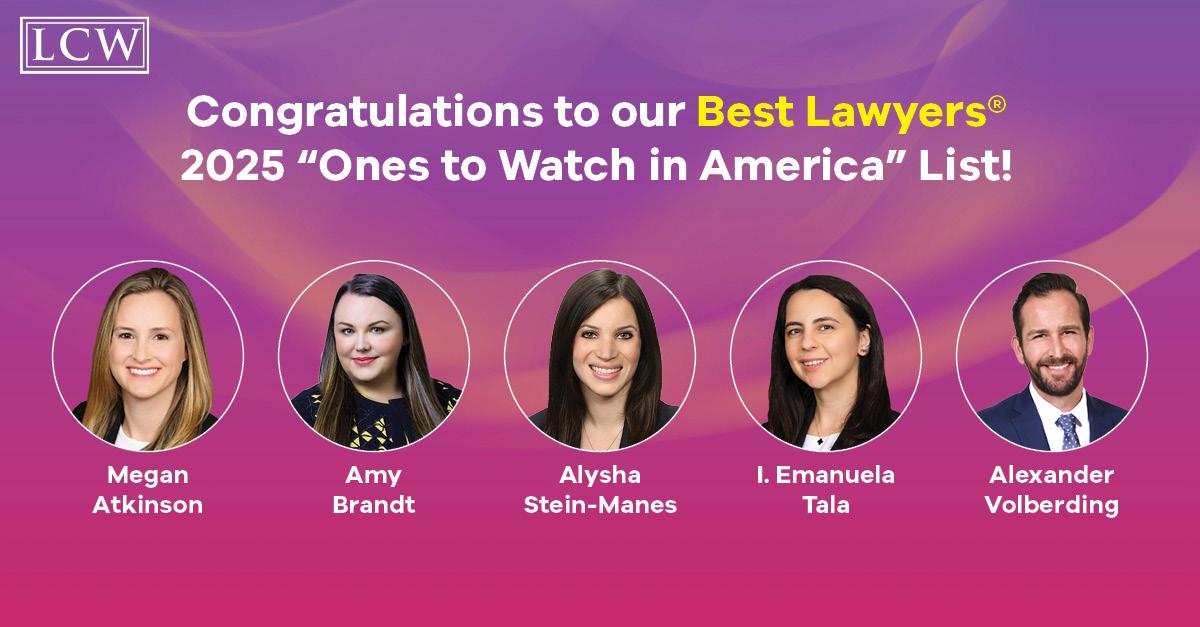
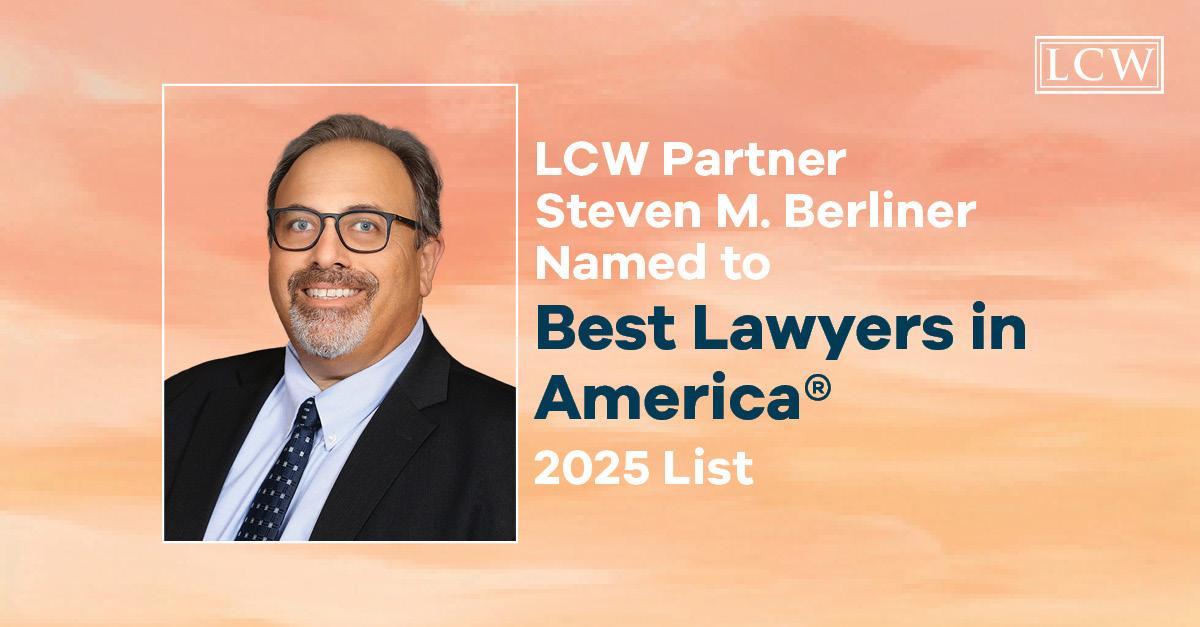
On June 6, 2024, the Supreme Court of California ruled in favor of the UC Regents and its new student residential housing development plan for the People’s Park location in Berkeley. This decision, in conjunction with the California legislature’s urgency legislation, AB 1307, may have finally concluded the years long battle waged by Make UC a Good Neighbor (Good Neighbor), an activist group created to fight the development, against the UC Regents.
The Supreme Court considered the matter after granting review of the Court of Appeals decision finding that the environmental impact report (EIR) was faulty because it: (1) “failed to assess potential noise impacts from loud student parties in residential neighborhoods near the campus,” and (2) failed to justify the decision not to consider alternative locations to the People’s Park project.” The UC Regents certified the EIR in the summer of 2021. It included both a program EIR “to identify and assess potential environmental impacts from the approval and implementation” of the development plan and a project EIR to evaluate the implementation of the specific development projects. The specific development project included (1) student housing; (2) preservation and revitalization of green space for the public; and (3) affordable and permanent supportive house to be developed by a nonprofit partner.
However, after the Court granted review of the issue of the EIR’s faultiness, the legislature passed AB 1307 on September 7, 2023. AB 1307 provides: (1) the effects of noise generated by human beings is not a significant effect on the environment for purposes of CEQA; and (2) institutions of public higher education do not need to consider alternatives to the location of a proposed project if certain requirements are met. Thus, AB 1307 significantly narrowed the scope of the Court’s review.
Good Neighbor conceded that AB 1307 applied and that the new law made clear that the EIR is not required to examine social noise or potential alternative locations for residential projects. Yet, Good Neighbor contended that the development plan is not a “residential project” within the meaning of the new law and therefore could not be exempt from CEQA analysis. Good Neighbor also asked the Court to consider housing projects the UC Regents might pursue in the future under this development plan.
The Court noted that the term “residential project” is not defined in CEQA, meaning the court will use the term’s ordinary meaning. When the Court applied the ordinary meaning of “residential project,” it concluded that the development plan and proposed student housing clearly meets the definition.
As to Good Neighbor’s request that the Court examine future projects, it looked to the Legislature’s intent in passing AB 1307. The Legislature clearly intended AB 1307 to abrogate the appellate court’s decision in favor of Good Neighbor; specifically, their decision that social noise from residential users may constitute a significant impact on the environment. The Legislature was also aware of the UC Regent’s future planned projects. The Court concluded that the EIR was not inadequate for failing to consider the impacts of social noise in accordance with AB 1307.
The Supreme Court’s decision marks another step forward in addressing California’s student housing crisis, particularly at UC Berkeley where the UC campus houses the lowest percentage of its students as compared to other UC campuses. Colleges and community college districts therefore do not need to consider the effects of student noise, or alternatives to a proposed location if certain requirements are met, for purposes of CEQA.
Make UC A Good Neighbor v. The Regents of the Univ. of Cal. No. S279242 (Cal. Jun. 6, 2024)
On July 3, 2024, the United States District Court for the Southern District of Mississippi issued a nationwide injunction to block enforcement of the Affordable Care Act (ACA) Section 1557 regulations that prohibit discrimination on the basis of gender identity.
In May 2021, the United States Department of Health and Human Services (HHS) published a notice stating that it would interpret and enforce Section 1557’s prohibition of discrimination on the basis of sex to include discrimination on the basis of sexual orientation and gender identity. Then in April 2024, HHS issued a final rule for Section 1557 that broadened protections against discrimination on the basis of race, color, national origin, sex, age, and disability with health programs and activities receiving federal financial assistance. The final rule clarified that sex discrimination includes, but is not limited to, prohibiting discrimination on the basis of sexual orientation, gender identity, sex characteristics (including intersex traits), pregnancy or related conditions, and sex stereotypes.
Fifteen states filed a lawsuit seeking to enjoin HHS from enforcing the final rule that would have gone into effect July 5, 2024. The fifteen states claimed the final rule would “unlawfully coerce [their] compliance by threatening to strip billions of dollars in federal funding” if they did not comply with the final rule by providing health coverage for procedures like gender-transitions surgeries.
The United States District Court for the Southern District of Mississippi determined that HHS overreached its authority to interpret Section 1557 as including gender identity in sex discrimination. The Court found that the fifteen states met the requirements for imposing a
preliminary injunction and stay of the final rule.
The nationwide ban on the final rule of Section 1557 means that HHS is prohibited from enforcing, relying on, implementing, or otherwise acting pursuant to the final rule provision that provides sex discrimination includes discrimination based on gender identity. A similar case, Texas v. Becerra, 2024 WL 329147 (E.D. Tex. 2024) set a similar injunction in Texas and Montana.
While the final rule did not apply to employment practices, which means that public agencies are not directly impacted by the recent injunction, public agency employers should keep in mind that there are California laws prohibiting employment discrimination based on gender and gender identity. Although Section 1557 is not an employment discrimination law, public agency employers should still be aware of Section 1557’s requirements since they relate to services provided by health insurance issuers that the public agencies may contract with.
Tennessee v. Becerra, __ F.Supp.3d __, 2024 U.S. Dist. LEXIS 119525 (S.D. Miss. 2024); Texas v. Becerra, __ F.Supp.3d, 2024 U.S. Dist. LEXIS 117573 (E.D. Tex. 2024).
Tristan Tanner worked for a medical technology company called Stryker and was responsible for delivering surgical equipment to hospitals. In June 2021, Tanner requested leave for the birth of his child. Tanner and his former girlfriend were expecting a baby in early August 2021 and his former girlfriend had moved from Tampa (where Tanner lived) to Connecticut. Tanner requested leave under the Family and Medical Leave Act (“FMLA”) beginning July 26, 2021 so that he could travel to Connecticut and be present for the birth of his child.
Stryker told Tanner multiple times that his FMLA leave would not begin until his child was born. The company advised him that if he was going to take time off from work prior to the child’s birth, he would need to use sick leave or vacation.
Tanner only had four days of Paid Time Off (“PTO”) available but he had a handful of sick leave days. He decided to take five days off work from Friday, July 30 to Friday, August 6 to pack and plan for his trip to Connecticut during which he used all four of his PTO days and one sick leave day. He then traveled to Connecticut on Sunday, August 8 where he waited for the birth of his baby. He spent his days staying at his hotel and looking around neighborhoods to see if he could see himself relocating to Connecticut. His baby’s due date came and went. Tanner ran out of PTO and sick leave on Friday, August 13.
The baby was born four days later on Thursday, August 19. For those four workdays, Tanner did not have any accrued leave to cover his time off and Stryker docked him attendance points for his absences under its attendance policy.
One day after the baby’s birth on August 20, Stryker’s Human Resources staff called Tanner and first congratulated him on the birth of his child. The Human Resources staff member then told Tanner that effective that day, he was no longer employed with Stryker due to the unexcused absences he took before the birth of his child.
Tanner filed a lawsuit claiming interference with his FMLA rights and FMLA retaliation. The trial court determined there was no interference with Tanner’s FMLA rights because Tanner was not entitled to take FMLA leave for his absences before the birth of his child. Upon appeal, the Eleventh Circuit agreed with the trial court. The Eleventh Circuit said the narrow question was: “Does the FMLA provide an expectant parent who is neither pregnant nor married to a pregnant spouse with pre-birth leave so that he may await the child’s birth away from work?” It determined the answer was “no.” The Eleventh Circuit recognized that employees may use job-protected FMLA leave before the birth of their child if they need to care for a pregnant spouse who is incapacitated or needs prenatal care. However, Tanner was not married to his former girlfriend, who was pregnant with his child.
The trial court determined that there was no FMLA retaliation since Tanner was not entitled to take and did not take FMLA leave when Stryker made the decision to terminate his employment. The Eleventh Circuit agreed.
Tanner v. Stryker Corp. of Mich., 104 F.4th 1278 (11th Cir. 2024).
Note:
In California, the California Family Rights Act (“CFRA”) allows employees to take job-protected CFRA leave to care for family members and a designated person with a serious health condition. The Eleventh Circuit focused on the fact that Tanner was not married to the person who was carrying his child. Therefore, he was not eligible to take pre-birth FMLA leave to care for his pregnant former girlfriend since she was not his spouse. Since the CFRA has expanded the use of job-protected CFRA leave to care for a designated person, then an employee who is eligible for CFRA leave and who is in Tanner’s situation could use CFRA before the birth of their child to care for a former partner if they designate the former partner as their “designated person.” However, note that Tanner did not claim he took time off work to care for his former girlfriend due to her serious health condition. Instead, he took time off to prepare for his trip, to spend time in his hotel, and to explore neighborhoods.
Question: Do summer day camp expenses for dependents count towards an employee’s Child and Dependent Care tax credit?
Answer: Yes, summer day camps are eligible expenses for the Child and Dependent Care tax credit. The purpose of the credit is to allow working parents to have childcare for their children who are under the age of 13 during the summer. The costs of the summer day camp are eligible for the credit. The amount of the credit differs from employee to employee based on income and a percentage of expenses incurred for the care of the child to enable the taxpayer to work, look for work, or attend school. While summer day camps are eligible for the credit, overnight summer camps are not. The IRS’s reasoning is that sending a child to an overnight camp is not considered a work-related expense.
Each month, LCW presents a monthly benefits timeline of best practices.
September
• Monitor the upcoming IRS release of the new required affordability percentage for 2025, which is used to determine the affordability of employer-sponsored minimum essential coverage. Determine whether the new required contribution percentage will affect whether your agency offers affordable minimum essential coverage.
• Review and prepare all documents for open enrollment. If your agency uses a Section 125 cafeteria plan, ensure employees are signing salary reduction agreements during open enrollment.

For more information on some of our upcoming events and trainings, click on the icons:



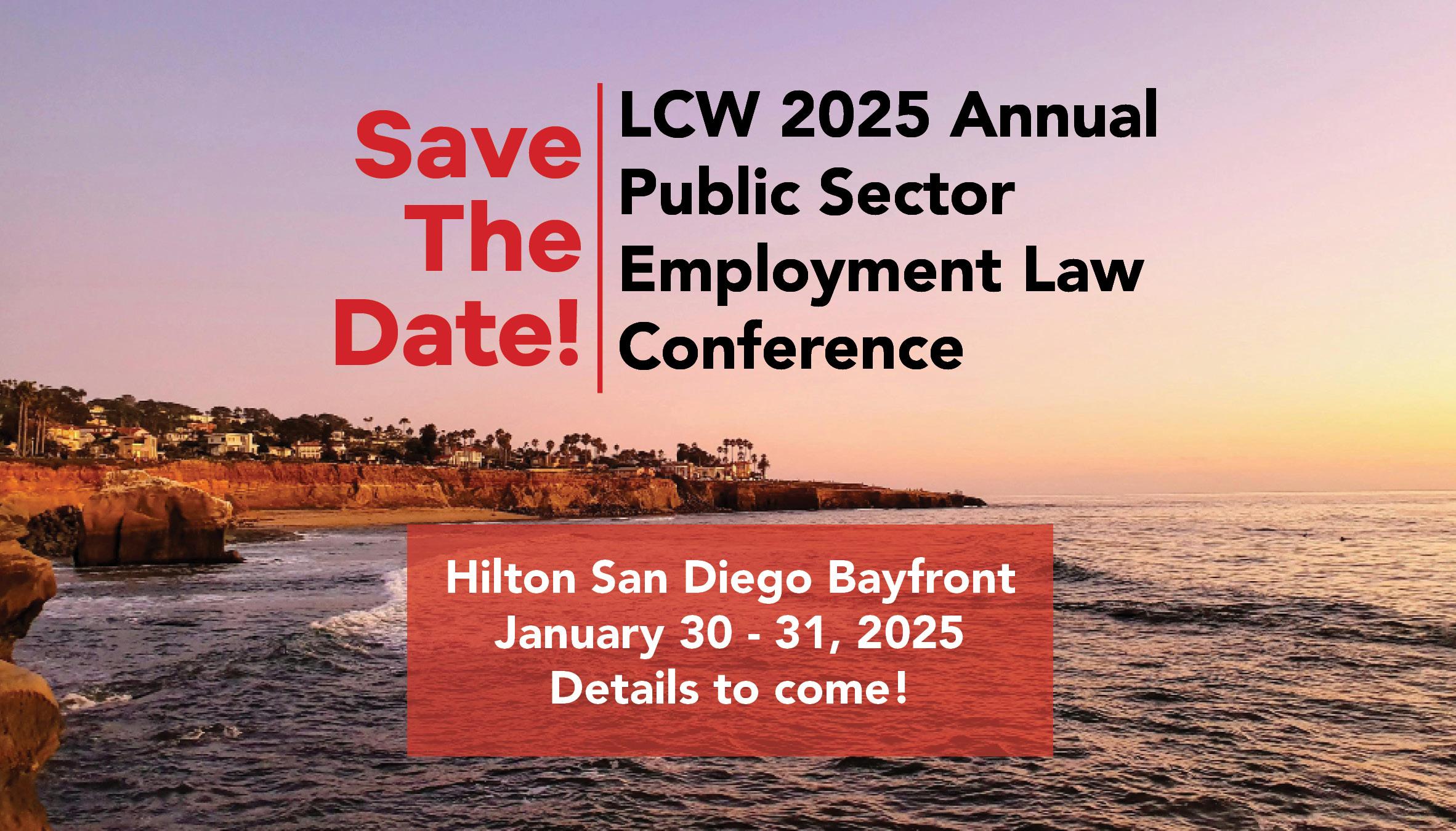
Partner
A probationary police officer was injured while investigating a traffic collision. He was off work for two weeks. He returned with discomfort in his spine and leg, and various work restrictions, including: no standing, walking, sitting, or bending at the waist for more than 20 cumulative minutes; no lifting, carrying, pushing or pulling anything more than five pounds; and lying down for 20 minutes each hour. The officer was using crutches at the onset of his injury. The City could not reasonably accommodate the work restrictions and placed the officer on temporary total disability leave.
While the officer was on leave, the city received information that the officer might be playing in a basketball league. The City investigated the officer for possible fraud. The investigator found that the officer was walking without his crutches, carrying heavy items while walking back and forth, and was climbing a chain link fence. When the officer sought to return to work, the City notified him that he was being released from his probationary position because he participated in activities that were inconsistent with his work restrictions.
The officer then sued the City for violating the Fair Employment and Housing Act (FEHA). The officer alleged the city terminated him because of his disability, and in retaliation for his request for reasonable accommodation. He further alleged the City failed to: accommodate him; engage in the interactive process; and prevent discrimination and retaliation.
The City moved for summary judgment arguing that it had a legitimate reason to fire the officer due to the results of the fraud investigation. The city further argued the officer could not prove at least one element of each of his causes of action. The trial court granted the city’s motion.
On appeal, the officer argued that several triable issues of material fact existed that should have prevented the trial court from granting the City’s motion. The California Court of Appeal sided with the City, concluding that the trial court correctly dismissed the case.
The appellate court concluded that the officer did not raise a triable issue as to his causes of action for discrimination, retaliation, or failure to prevent discrimination or retaliation because he did not have evidence that his disability played a motivating role in his termination. Also, the officer did not demonstrate a triable issue that the City’s reasons for his termination were pretextual.
The officer relied on a case that did not apply to his situation on his failure to accommodate claim. The officer could not raise a triable issue as to his cause of action for failure to participate in the interactive process because City provided the officer with leave as an accommodation. Finally, the officer did not identify any other reasonable accommodations that should have been provided to him.
Police Officer v. City (June 28, 2024, California Court of Appeal).
In 2021, a police officer was dispatched to a domestic disturbance call. Upon arrival, the police officer encountered the parents of a young woman who was intoxicated and experiencing a mental health crisis. The officer offered resources but did not believe her to be a danger to herself or others and so declined to take her to a mental health facility. The officer waited until the woman departed her parents’ home with a ride from an acquaintance.
The next day the officer located the young woman on social media and contacted her. That contact led to a flurry of communications that quickly became sexually provocative, and persisted over several months. Eventually the two met one night and had sex after the young woman had consumed several drinks of alcohol. When the young woman’s parents discovered this, they called the department and an IA investigation followed. The DA conducted a criminal investigation for potential rape charges but declined to prosecute.
The IA investigation report sustained findings of violations of department policy and recommended termination. The officer appealed the termination and the matter went before an arbitrator.
The family felt discouraged by the DA’s refusal to prosecute. Attorney Carvalho worked tirelessly to cultivate trust with the young woman and her family and they eventually testified at the arbitration hearing. The arbitrator found that a preponderance of the evidence showed that the officer violated multiple department policies, the applicable MOU, and committed a “sexual assault” according to Senate Bill 2’s proscriptions of “serious misconduct.” The arbitrator upheld the department’s decision to terminate.

Members of Liebert Cassidy Whitmore’s consortiums are able to speak directly to an LCW attorney free of charge to answer direct questions not requiring in-depth research, document review, written opinions or ongoing legal matters. Consortium calls run the full gamut of topics, from leaves of absence to employment applications, student concerns to disability accommodations, construction and facilities issues and more. Each month, we will feature a Consortium Call of the Month in our newsletter, describing an interesting call and how the issue was resolved. All identifiable details will be changed or omitted.
A community college district has a full-time faculty member who will be going on leave for two semesters, Fall 2024 and Spring 2025. The employee plans to work the first month, go on leave in paid status the following month, and continue the rest of her leave in unpaid status. The district wants to use a part-time faculty member to substitute and cover the assignment once the full-time faculty member goes on paid leave. The district asked LCW if they have an obligation to give the part-time faculty a contract at any point since the position they are filling is not vacant.
The LCW attorney explained that the Education Code authorizes districts to hire temporary faculty members under certain circumstances. In this case, the district is employing a temporary faculty member to fill the position of a regularly employed persona absent from service, as described in Education Code Section 87478.
Districts must provide temporary faculty with written notice at the time of employment that clearly indicates both the temporary nature of the employment and the length of the employment. If the district fails to provide this notice, the employee may be a contract employee by operation of law. To avoid the automatic conversion of temporary faculty to contract or regular status, district must provide clear, written notice of the employee’s temporary status and the salary they will receive on or before the first date of paid service, and also annually in July.
The LCW attorney advised the client to provide the temporary faculty member with written notice of their temporary status, and said the district did not need to provide a contract. The full-time faculty member on leave is entitled to return to their position when they return from leave. Therefore, the district must be careful not to fill the temporary vacancy with contract employees (also known as probationary or tenure-track employees). For that reason, the LCW attorney advised against providing a contract.
The LCW attorney also explained that under Education Code Section 87478, if the district employs a temporary faculty member for one complete school year, and then reemploys them the following school year in a faculty position, then the district must classify them as a contract employee. Additionally, the previous year’s employment as a temporary employee would be deemed a year of contract employment. Under this scenario, the faculty member’s status when rehired into the faculty position would be as a second-year probationary employee.

